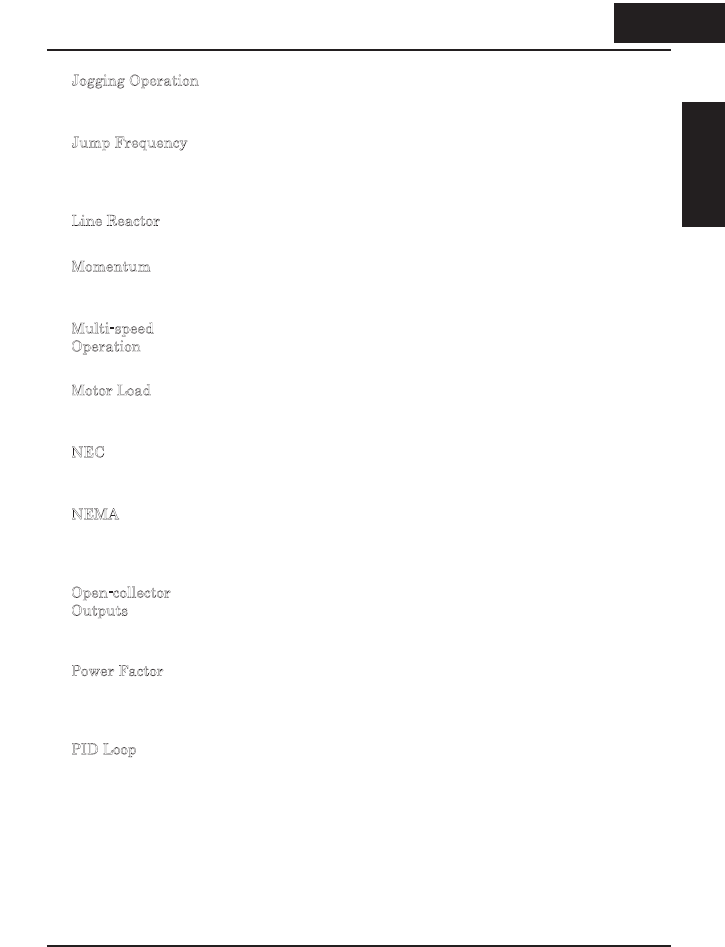
J
ogging Operation
Usually done manually, a jog command from an operator’s panel
requests the motor/drive system to run indefinitely in a particular
direction, until the machine operator ends the jog operation.
J
ump Frequency
A
jump frequency
is a point on the inverter output frequency range
that you want the inverter to skip around. This feature may be used
to avoid a resonant frequency, and you can program up to three jump
frequencies in the inverter.
L
ine Reactor
A three-phase inductor generally installed in the AC input circuit of
an inverter to minimize harmonics and to limit short-circuit current.
M
omentum
The physical property of a body in motion that causes it to remain in
motion. In the case of motors, the rotor and attached load are rotating
and possesses angular momentum.
M
ulti-speed
O
peration
The ability of a motor drive to store preset discrete speed levels for
the motor, and control motor speed according to the currently selected
speed preset. The Hitachi inverters have 16 preset speeds.
M
otor Load
In motor terminology, motor load consists of the inertia of the
physical mass that is moved by the motor and the related friction
from guiding mechanisms. See also
Inertia
.
N
EC
The National Electric Code is a regulatory document that governs
electrical power and device wiring and installation in the United
States.
N
EMA
The National Electric Manufacturer’s Association. NEMA Codes are
a published series of device ratings standards. Industry uses these to
evaluate or compare the performance of devices made by various
manufacturers to a known standard.
O
pen-collector
O
utputs
A common logic-type discrete output that uses an NPN transistor
that acts as a switch to a power supply common, usually ground. The
transistor’s
collector
is
open
for external connection (not connected
internally). Thus, the output
sinks
external load current to ground.
P
ower Factor
A ratio that expresses a phase difference (timing offset) between
current and voltage supplied by a power source to a load. A perfect
power factor = 1.0 (no phase offset). Power factors less than one cause
some energy loss in power transmission wiring (source to load).
P
ID Loop
Proportional - Integral-Derivative - A mathematical model used for
process control. A process controller maintains a process variable
(PV) at a setpoint (SP) by using its PID algorithm to compensate for
dynamic conditions and vary its output to drive the PV toward the
desired value. For variable-frequency drives, the process variable is
the motor speed. See also
Error
.
A5
Appendix A
A 5
Appendix A


















